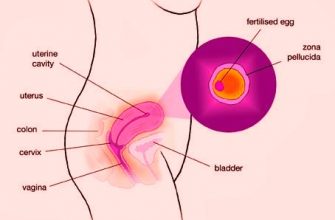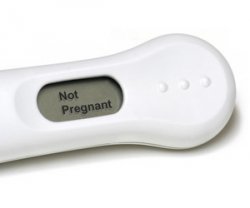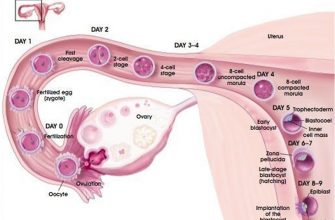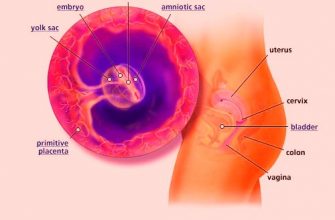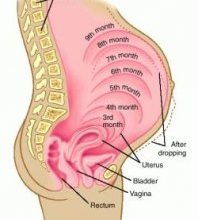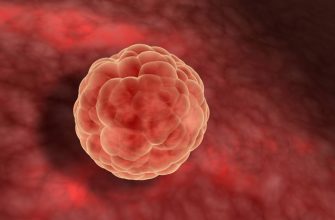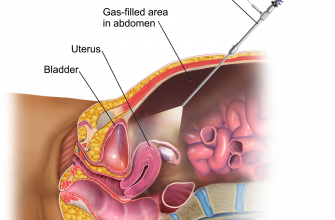What does the second week of pregnancy mean?
The second week of pregnancy is a relative concept that is perceived differently by doctors and future mothers.
Medical approach
In medical practice, pregnancy is calculated from the first day of the last period. That is, a two-week-pregnant woman is a woman who had her last period started two weeks ago. Her menstrual cycle is over now, and the ovulation is taking place soon. At this stage the body is getting prepared for carrying a future child.
The conception occurs during the second week when the egg comes out of the ovary and meets sperm that could have already been there for a couple of days. Likewise, the egg can wait for approximately a day until tardy sperm arrives and fertilizes it. Hence, it is almost impossible to calculate the exact day of conception. That is why, in order to give all pregnancies some standard timing, doctors ask you about the first day of your last period, and this date will then be considered the start of your pregnancy.
For the next 10-15 days after the medical second week there will be no late period, and the woman will probably be unaware of her pregnancy, but in reality the process has already started.
Medical pregnancy term is the one that your doctor will always base upon and the one that is mentioned in all books for future mothers. It is also the term that the woman should tell when becoming a client of a maternity center that she will attend for the whole time of her pregnancy.
Common approach
Most women get very confused when they hear their medical pregnancy term. Indeed, the doctor would affirm that the woman has already clocked in two weeks of pregnancy before she even conceives.
That is why, for a future mother, the second week of pregnancy has a different meaning. It is the week when she was expecting her next period to start but it didn’t (that is, the second week after the conception actually took place). This is the stage when most women start presuming to be pregnant and buy a pregnancy test in order to learn this for sure. Still, if a woman that thinks she is on her second week of pregnancy pays a visit to her gynecologist, she will be told that she is one-month-pregnant already.
Sometimes for the sake of convenience doctors calculate yet another pregnancy term that starts with the second week after the next period was due. This term is two weeks behind the common pregnancy term and four weeks behind the medical term.
What happens in the second week?
Every month many eggs grow in a woman’s body but only one of them eventually becomes dominant. This is the egg destined for ovulation, and on the second week this lucky one enters into the final stage of its maturation.
During this week the egg stays inside the ovary or, to be precise, in the follicle filled with a special liquid. The amount of liquid constantly increases, creating extra pressure for the follicle’s lining. Eventually the follicle bursts and the liquid carries the fully-grown egg in the abdominal cavity. This process is called ovulation and it repeats every month, preparing the body for a possible conception.
Shortly before the ovulation, the basal body temperature (BBT) may decrease slightly but the day after the ovulation it makes a sharp rise. The woman who is planning her pregnancy should measure her BBT every morning starting from approximately day 12 after the first day of her previous period. At a certain point she will notice a rise in BBT which means that in the past day the ovulation took place.
After the egg is released from the ovary, it lives only for about one day. If within this time (or a couple of days before) the woman has unprotected sex, then the egg merges with the sperm, and the conception occurs. On average, a healthy woman has a 25 percent chance of getting pregnant with each cycle.
After the presumed conception of the second week, some women may want to visit the gynecologist in order to find out about their pregnancy. It’s better not to do that and especially not to go for gynecological examination, due to the high risk of early miscarriage. If the egg is disturbed and fails to implant in the uterus, then the woman will miscarry, without even knowing of having been pregnant. However, such incidents are considered not miscarriages but rather unsuccessful attempts of conception, so the woman should not be afraid of them.
Instead, it is recommended to visit the doctor when the next period will be 1 or 2 weeks late (that is, on the fifth or sixth medical week) and in the meantime to make a home pregnancy test.
Hormones
The second medical week (or, better, the part of it before the conception) is characterized by changes in the woman’s endocrine profile, with the level of estrogen increasing significantly. This hormone stimulates the lining of the uterus to begin thickening. When the level of estrogen is at its maximum, the ovulation takes place, causing sometimes the future mother to feel pain in the bottom of her stomach. In this period it is not recommended to carry heavy bags, go to a sauna or perform any effort-consuming physical activities.
Once the egg gets successfully fertilized, another hormone starts dominating – progesterone. Its mission is to prepare the woman’s body for the new tenant.
What a two-week fetus is like
When the second medical week starts, there is no fetus as such. Then the conception occurs, and the future baby is no more than a match of the egg and the sperm, and it only starts growing. Here the embryonic stage of the pregnancy begins.
After two weeks the embryo contains about 150 cells and is only 0.1-0.2 mm long. It floats inside the uterus while the uterus lining’s secretions protect it. The baby’s sex is already determined (in fact, it was decided as soon as the conception occurred) but the mother won’t know it for several more weeks.
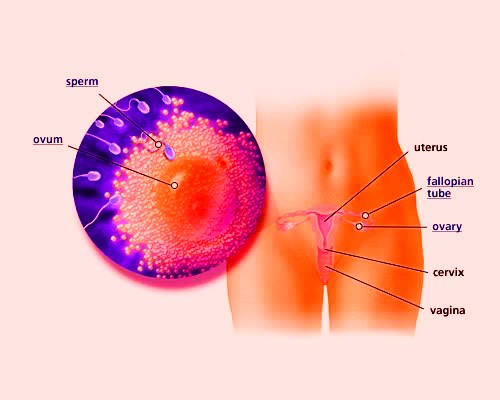
At the end of the second week the fetus is divided into three separate layers. The first (inner) layer, known as the endoderm, will later become the baby’s respiratory tract and digestive system. The second layer is called mesoderm and will eventually develop into the baby’s bones, muscles, outer covering, circulatory system, excretory system and genitalia. Finally, the third layer (ectoderm) will become the brain, nervous system, skin, hair and nails of the baby.
The end of the second week is also the time when the spinal cord starts developing.
What to expect in the second week?
Since in the beginning of the second week there is no pregnancy as such, the woman has no symptoms of being pregnant. However, after conception occurs, some women start having certain early-pregnancy symptoms.
The most common two-week pregnancy symptom is tender breasts. You may notice that your breasts feel sore and inflated, especially around your nipples. This is caused by pregnancy hormones that increase the blood supply to your breasts. Your usual bras may start feeling uncomfortable, and you may find it slightly painful to take a shower or when you touch your breasts.
Sometimes women who conceived several days ago have more vaginal discharge than usual. This is absolutely normal but if your vaginal discharge changes significantly in volume or in color, you should consult your gynecologist.
A rather rare but still possible symptom of a two-week pregnancy is the change of food tastes. Women can suddenly start feeling aversion towards coffee, alcohol or spicy food. The other way round, you may find out that you like foods that didn’t use to be your favorite ones. Besides, you can also become over-sensitive about kitchen smells. However, these symptoms are more common in the later weeks of pregnancy.
Among other symptoms of a two-week pregnancy are:
- dizziness (at any time of the day, not necessarily with vomiting);
- excessive tiredness;
- vagina color change (normally the vagina is pink but due to increased blood supply during pregnancy it may start becoming dark purplish or dark red).
However, it should be noted that some of the above-described symptoms (like sore breasts or dizziness) are commonly experienced by many women before each period. Hence, you are not necessarily two-week-pregnant if you have one or several of these symptoms. Wait until your next period should come, and if it is several days late, take a pregnancy test. This is the most reliable way of finding out about pregnancy for women who have irregular menstrual cycles or notice no early pregnancy symptoms.



